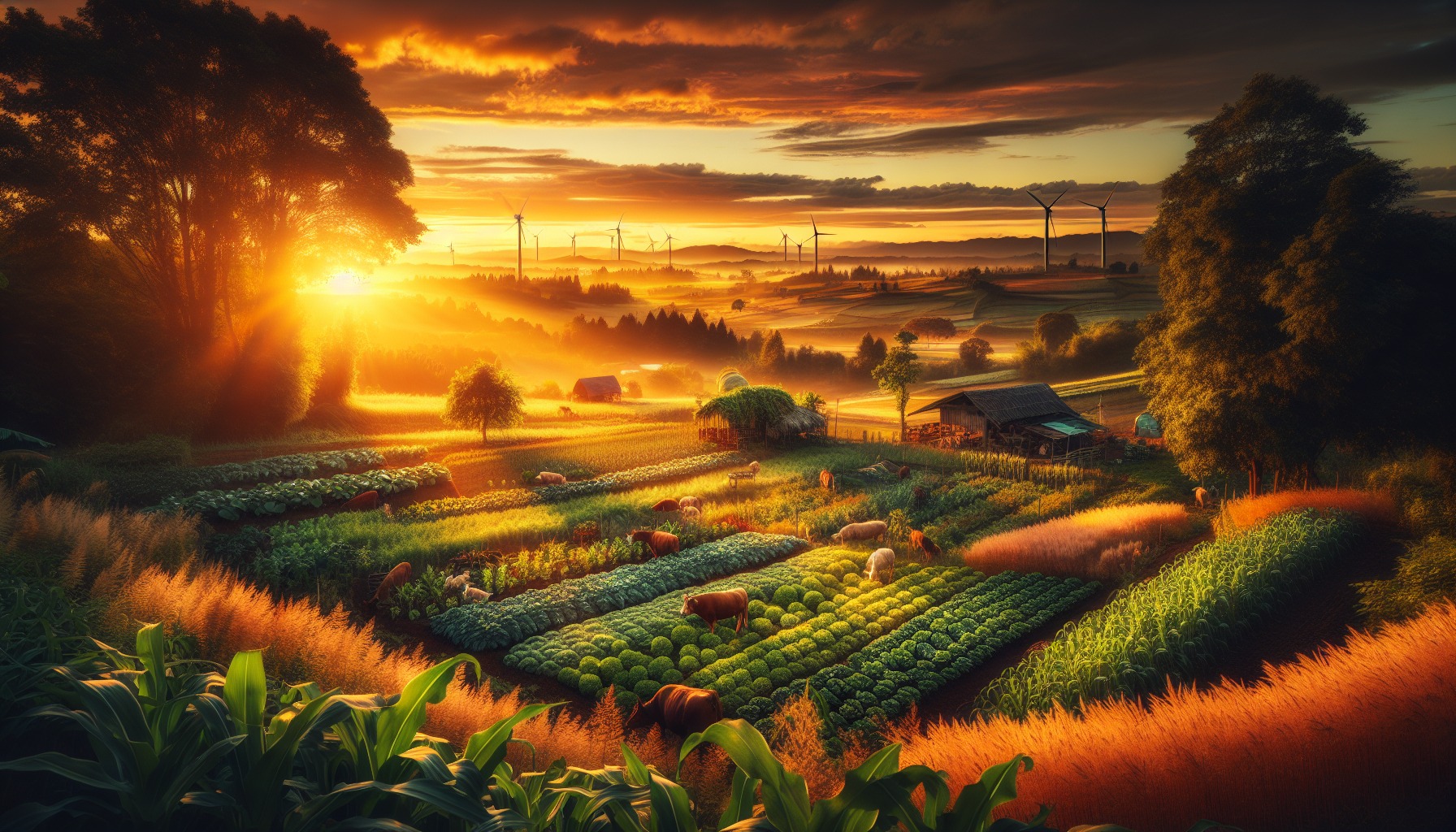Organic Farming: Cultivating a Sustainable Future
In recent years, organic farming has emerged as a beacon of hope for sustainable agriculture, offering a harmonious balance between nature and human needs. This method of farming, which eschews synthetic chemicals in favor of natural processes, is not just a trend but a necessary shift towards a more sustainable future. In this blog post, we will explore the principles of organic farming, its benefits, and its role in promoting ecological balance.

Understanding Organic Farming
At its core, organic farming is a holistic approach to agriculture that emphasizes the use of natural inputs and processes. According to the U.S. Department of Agriculture, organic farming is a system designed to respond to site-specific conditions by integrating cultural, biological, and mechanical practices. This approach fosters the cycling of resources, promotes ecological balance, and conserves biodiversity.
Organic farming avoids the use of genetically modified organisms (GMOs) and synthetic chemicals, relying instead on natural fertilizers, crop rotations, and biological pest control. This method not only supports the health of the soil but also enhances the nutritional quality of the produce.
The Benefits of Organic Farming
- Healthier Soils and Ecosystems
One of the most significant advantages of organic farming is its positive impact on soil health. By using natural fertilizers and crop rotations, organic farmers enhance soil fertility and structure. This leads to better water retention, reduced erosion, and increased biodiversity. Healthier soils, in turn, support robust plant growth and contribute to a more resilient ecosystem.
- Nutrient-Rich Produce
Organic farming often results in produce with higher nutritional content. Studies have shown that organic fruits and vegetables can have higher levels of vitamins, minerals, and antioxidants compared to their conventionally grown counterparts. For example, organic peaches have been found to contain higher polyphenol content, which contributes to their superior taste and nutritional value.
- Environmental Protection
By avoiding synthetic pesticides and fertilizers, organic farming reduces pollution and conserves water. It also supports pollinating insects, such as bees, by eliminating harmful chemicals like neonicotinoids, which have been linked to Colony Collapse Disorder. This is crucial for maintaining biodiversity and ensuring the health of ecosystems.
- Improved Animal Welfare
Organic farming practices prioritize animal welfare by providing livestock with access to outdoor spaces and natural diets. This not only improves the quality of life for the animals but also results in healthier meat and dairy products for consumers. For instance, cows raised on organic farms produce milk with higher levels of Vitamin E and Omega-3 fatty acids.
- Resilience to Pests and Diseases
Organic farming encourages plants to develop natural resistance to pests and diseases. By fostering healthy soil and plant ecosystems, organic methods enhance the plants’ immune systems, making them less susceptible to infestations and illnesses. This reduces the need for chemical interventions and promotes sustainable agricultural practices.
Challenges and Considerations
While organic farming offers numerous benefits, it is not without its challenges. Organic farmers often face higher production costs and lower yields compared to conventional farming. Additionally, the transition to organic farming requires significant knowledge and expertise, as well as a commitment to long-term sustainability.
Despite these challenges, the demand for organic products continues to grow, driven by consumers’ increasing awareness of health and environmental issues. As more farmers adopt organic practices, economies of scale may help reduce costs and make organic farming more accessible.
The Future of Organic Farming
Organic farming represents a vital step towards a more sustainable and equitable food system. By prioritizing ecological balance and biodiversity, organic farming not only addresses the immediate needs of consumers but also safeguards the environment for future generations.
As we move forward, it is essential to support organic farmers through policies that encourage sustainable practices and provide incentives for transitioning to organic methods. Education and research are also crucial in advancing organic farming techniques and overcoming existing challenges.
In conclusion, organic farming is more than just a method of agriculture; it is a philosophy that embraces the interconnectedness of all living things. By choosing organic, we contribute to a healthier planet and a more sustainable future. Let us continue to support and promote organic farming as a means of nurturing our environment and ourselves.



